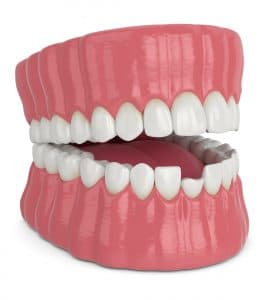
Our office is currently closed to preventive care and optimal cosmetic treatments, but we’re still available to help Ankeny, IA, patients with dental emergencies. In today’s blog, we’re looking at what constitutes a dental emergency, and when you should see our team for treatment. We’re also discussing how to address these concerns and minimize your discomfort until you can see us!




 Caring for your smile is almost second nature to most people, but doing it effectively can take more skill and attention than people often realize. For example, when it comes to gum disease, which is one of the most common chronic oral health concerns, preventing its formation seems simple. Yet, nearly 70% of adults will develop it to some degree by the time they reach their 60’s, and for some, it can lead to devastating consequences for their oral health. Today, we take a look at how you can be
Caring for your smile is almost second nature to most people, but doing it effectively can take more skill and attention than people often realize. For example, when it comes to gum disease, which is one of the most common chronic oral health concerns, preventing its formation seems simple. Yet, nearly 70% of adults will develop it to some degree by the time they reach their 60’s, and for some, it can lead to devastating consequences for their oral health. Today, we take a look at how you can be 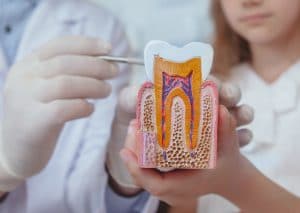 With the advanced state of modern dentistry and all we know about preventive dental care, you may be surprised to learn that a large majority of people still experience tooth decay to some degree in their lives. Tooth decay, which is the infection in your tooth structure that leads to cavity development, can range from mild to severe, depending on several different factors (such as how long you’ve had it). Today, we examine why
With the advanced state of modern dentistry and all we know about preventive dental care, you may be surprised to learn that a large majority of people still experience tooth decay to some degree in their lives. Tooth decay, which is the infection in your tooth structure that leads to cavity development, can range from mild to severe, depending on several different factors (such as how long you’ve had it). Today, we examine why  One of the biggest problems with bruxism (chronic teeth-grinding) is that patients don’t always realize when they have it. Unlike some oral health concerns, like cavities or gum disease, some of the symptoms of bruxism don’t really become noticeable until they become severe. That includes significant damage to your tooth structure, as well as several other problems that may depend on the specific cause of your bruxism. Today, we examine just
One of the biggest problems with bruxism (chronic teeth-grinding) is that patients don’t always realize when they have it. Unlike some oral health concerns, like cavities or gum disease, some of the symptoms of bruxism don’t really become noticeable until they become severe. That includes significant damage to your tooth structure, as well as several other problems that may depend on the specific cause of your bruxism. Today, we examine just  Some of the more serious consequences of gum disease aren’t always immediately noticeable until the disease has already grown severe. For instance, it’s the leading cause of adult tooth loss when it’s allowed to grow severe, but until then, the symptoms of gum disease might go largely unnoticed if you aren’t diligent about your oral health care. The good news is that detecting and
Some of the more serious consequences of gum disease aren’t always immediately noticeable until the disease has already grown severe. For instance, it’s the leading cause of adult tooth loss when it’s allowed to grow severe, but until then, the symptoms of gum disease might go largely unnoticed if you aren’t diligent about your oral health care. The good news is that detecting and 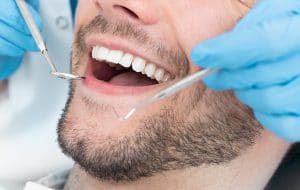 When you visit your dentist regularly for routine checkup and cleaning appointments, is a great chance for your dentist to learn as much as possible about the current state of your dental health. It’s also an excellent opportunity for you to learn more about it yourself, like if there’s more you should be doing to help keep your smile consistently healthy. Today, we examine a few important
When you visit your dentist regularly for routine checkup and cleaning appointments, is a great chance for your dentist to learn as much as possible about the current state of your dental health. It’s also an excellent opportunity for you to learn more about it yourself, like if there’s more you should be doing to help keep your smile consistently healthy. Today, we examine a few important 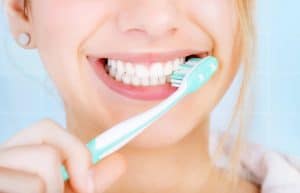 Most people know, at least to some degree, that
Most people know, at least to some degree, that 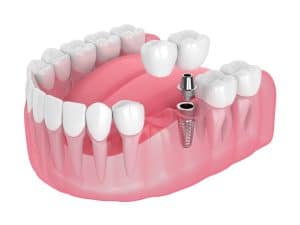 You have a lot of choices when it comes to addressing most dental health issues. For instance, if you want to improve your smile’s appearance or restore a tooth that’s been damaged, we can customize one of several different cosmetic or restorative treatments to address it. When you experience tooth loss and need to rebuild your smile, however, your options are a little more limited. Your main choices are between a dental bridge or denture, depending on the extent of your tooth loss. However, most patients who lose teeth also have the option of supporting their prosthesis
You have a lot of choices when it comes to addressing most dental health issues. For instance, if you want to improve your smile’s appearance or restore a tooth that’s been damaged, we can customize one of several different cosmetic or restorative treatments to address it. When you experience tooth loss and need to rebuild your smile, however, your options are a little more limited. Your main choices are between a dental bridge or denture, depending on the extent of your tooth loss. However, most patients who lose teeth also have the option of supporting their prosthesis  For most dental health concerns, there are several different options for treating them. The best choice usually depends on things like the extent of your condition and your own personal preferences for your smile and oral health. Because everyone’s needs and preferences are different, offering choices helps ensure that everyone receives the optimal, highly personalized care they need. The same is true when it comes to replacing your lost teeth. Though your options may be more limited, you still have a choice in how you rebuild your smile, and in just
For most dental health concerns, there are several different options for treating them. The best choice usually depends on things like the extent of your condition and your own personal preferences for your smile and oral health. Because everyone’s needs and preferences are different, offering choices helps ensure that everyone receives the optimal, highly personalized care they need. The same is true when it comes to replacing your lost teeth. Though your options may be more limited, you still have a choice in how you rebuild your smile, and in just  Restoring teeth is an important and common part of professional dental care, and for many people, it’s a lifeline to helping them avoid tooth loss. However, some compromised teeth may be too far gone to fix, and the longer they remain, the bigger the threat might be to the rest of your oral health. Fortunately, you still have a solution to saving your smile. When a tooth can’t be fixed,
Restoring teeth is an important and common part of professional dental care, and for many people, it’s a lifeline to helping them avoid tooth loss. However, some compromised teeth may be too far gone to fix, and the longer they remain, the bigger the threat might be to the rest of your oral health. Fortunately, you still have a solution to saving your smile. When a tooth can’t be fixed,